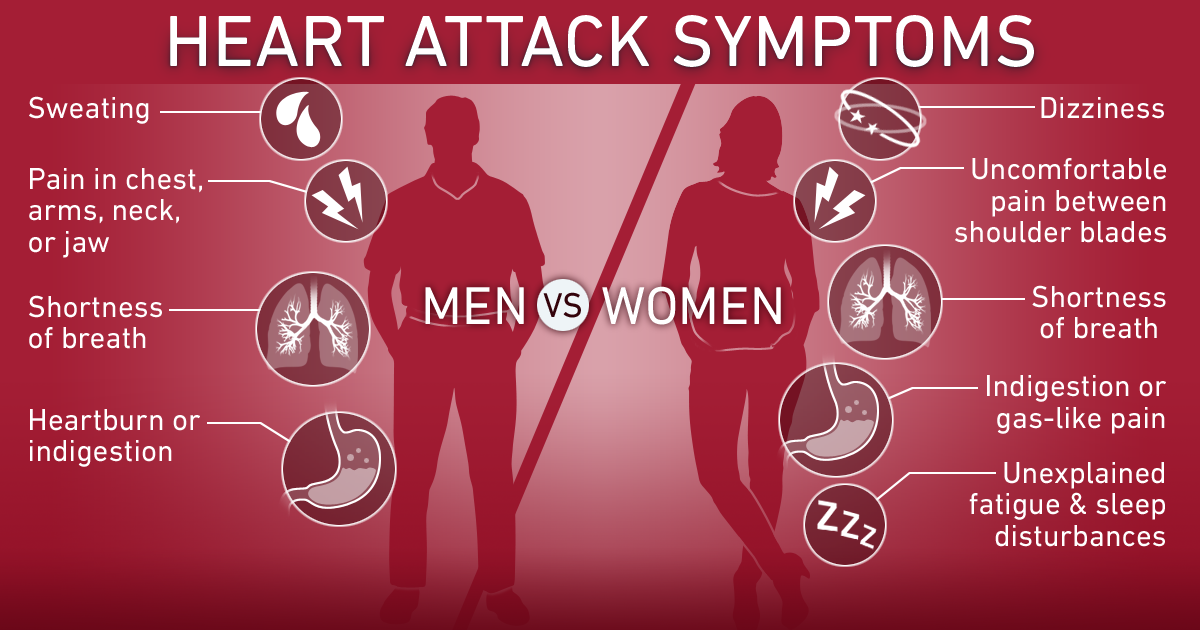HEART ATTACKS
About
- Heart attack signs and symptoms in men and women: Chest pain or discomfort; Shortness of breath; Pain or discomfort in the jaw, neck, back, arm, or shoulder; Feeling nauseous, light-headed, or unusually tired.
- A heart attack, also called a myocardial infarction, happens when a part of the heart muscle doesn’t get enough blood.
- The more time that passes without treatment to restore blood flow, the greater the damage to the heart muscle.
- Coronary artery disease (CAD) is the main cause of heart attack. A less common cause is a severe spasm, or sudden contraction, of a coronary artery that can stop blood flow to the heart muscle.
Associated Symptoms
- Chest pain or discomfort. Most heart attacks involve discomfort in the centre or left side of the chest that lasts for more than a few minutes or that goes away and comes back.
- The discomfort can feel like uncomfortable pressure, squeezing, fullness, or pain. Feeling weak, light-headed, or faint. You may also break out into a cold sweat.
- Pain or discomfort in the jaw, neck, or back.
- Pain or discomfort in one or both arms or shoulders.
- Shortness of breath. This often comes along with chest discomfort, but the shortness of breath also can happen before chest discomfort.

Heart attack during Exercise
A heart attack or cardiac arrest during any physical activity usually happens to those people who already have heart disease or genetic condition, like-
- Any genetic abnormality such as hypertrophic cardiomyopathy, this condition involves the thickening of a portion of the heart muscle, which makes it difficult to pump blood.
- Due to this, there is no balance between the demand and supply of blood.
- Other rare cases of a life-threatening heart attack on the field or in the gym include the sudden formation of a blood clot in the heart for some reason, affecting blood flow.
- A sudden decrease in blood flow in this way causes damage, especially to a healthy heart, which is new to working with low blood flow.
- If the heart is already weak, then it has passed through that condition.
- There is another situation when the heart is slowly accumulating cholesterol etc. over the years.
Factors resulting in a spike in Heart Attack
The role of PCSK9
- Use of PCSK9 inhibitors (PCSK9) helps in lowering cholesterol levels and reducing the risk of heart attacks.
- The PCSK9 are a new class of injectable drugs that reportedly reduce ‘bad’ cholesterol levels by up to 60% when combined with a statin (another class of drugs prescribed to help lower cholesterol levels).
- The discovery of cholesterol-lowering mutations in a human gene called PCSK9 led to the development of the most promising new drugs against heart disease since statins.




